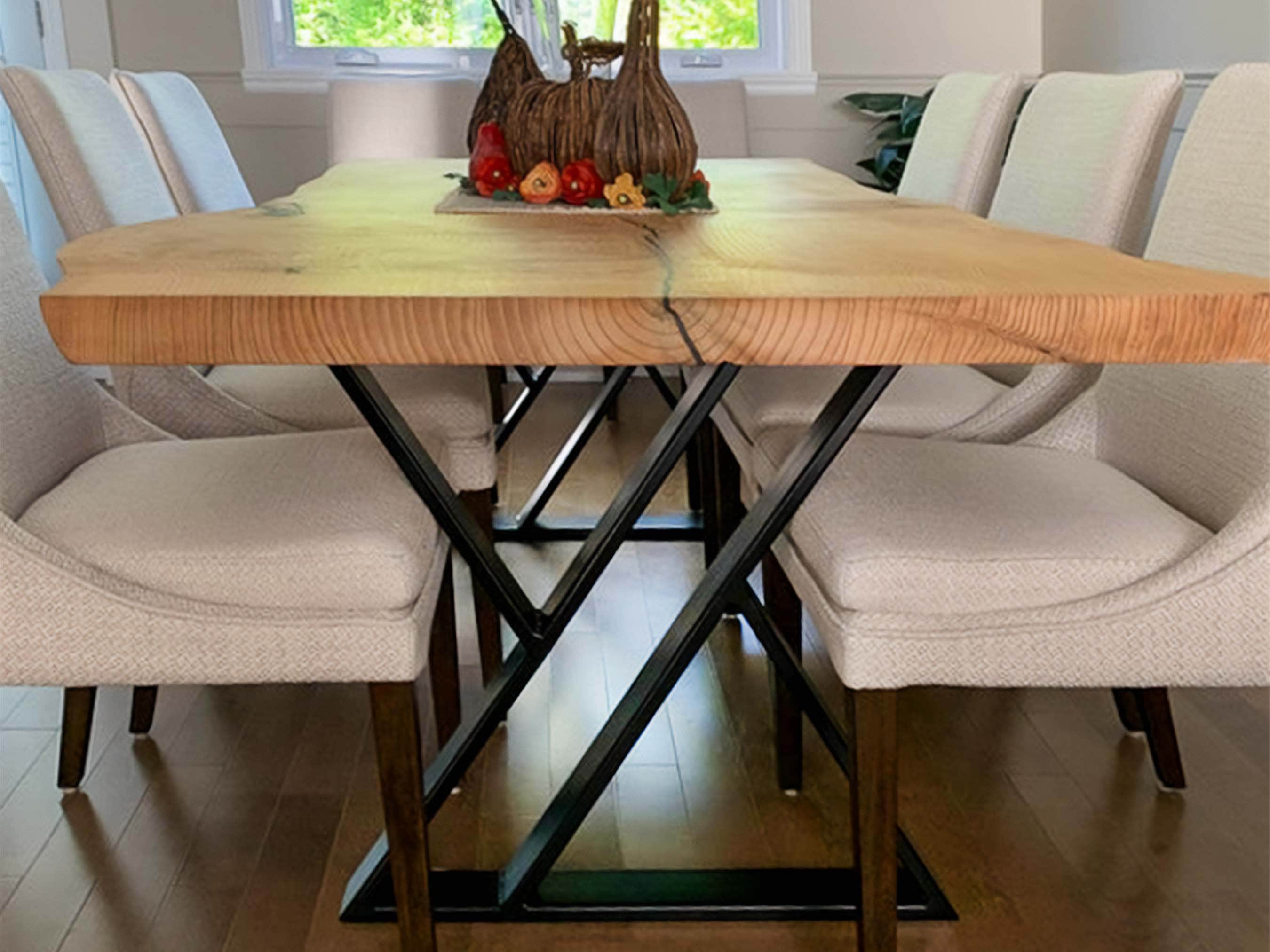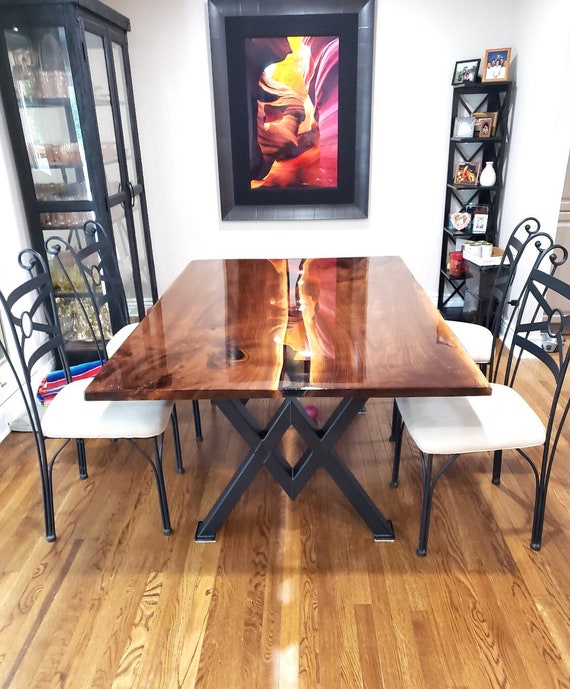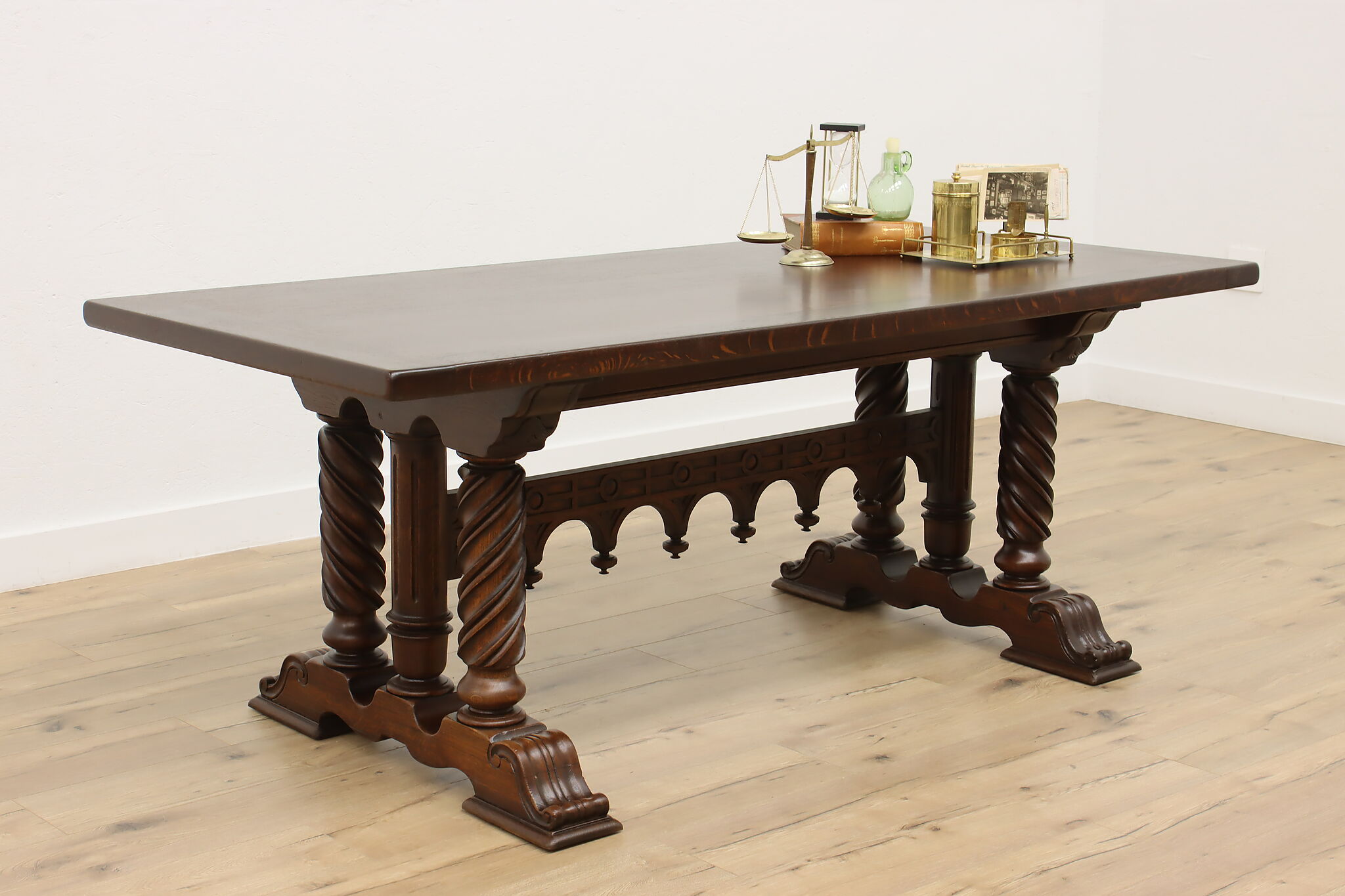Enhance Your Dining Room with Unique and Modern Dining Room Table Legs
Enhance Your Dining Room with Unique and Modern Dining Room Table Legs
Blog Article
Expert Tips for Setting Up Dining-room Table Legs for Maximum Security
When it involves mounting dining-room table legs, accomplishing optimum security is paramount for both capability and aesthetics. The process begins with selecting the right products and hardware, followed by precise positioning and consideration of weight distribution. Each action plays a crucial function in guaranteeing that the finished product endures daily use without jeopardizing safety and security or design integrity. Nevertheless, understanding the subtleties of these elements can significantly affect the total outcome. What particular methods can enhance security even additionally?
Select the Right Legs
When selecting the proper legs for your dining-room table, it is important to consider both functionality and looks. The legs you choose will significantly influence the total layout and stability of the table. Assess the table's intended usage; if you anticipate frequent events, tougher legs, such as those made from strong wood or metal, may be much more appropriate, as they provide raised sturdiness and assistance.
Conventional dining tables commonly vary from 28 to 30 inches in elevation, so make sure the legs line up with this standard for comfort. Tapered legs can add a contemporary touch, while transformed legs could communicate a more timeless visual.

Select Appropriate Hardware
Just how can the right equipment improve the stability and long life of your dining-room table? The selection of appropriate hardware is important to making certain that the legs of your table are securely affixed and able to withstand routine usage. Top notch screws, screws, and brackets supply the essential stamina to sustain the weight of the table, in addition to any added loads put upon it during dishes or celebrations.
When picking screws, choose those made from long lasting products such as stainless-steel or brass, which withstand rust and preserve integrity in time. The length of the screws is equally crucial; they need to penetrate deeply right into the table's framework without jeopardizing stability. For bolted links, consider utilizing lock washers to stop loosening due to vibration or activity.
Additionally, making use of corner brackets can include additional support, particularly for larger tables or those with larger tops. These braces disperse weight uniformly and aid keep the table's shape. Guaranteeing that the equipment you pick is proper for the particular materials of your table will additionally improve its total security and durability, allowing you to appreciate your eating experience for many years to come.
Ensure Proper Positioning
Correct placement of eating area table legs is necessary for both visual charm and functional security. Misaligned legs can result in an unequal tabletop, which may not just be visually unattractive but likewise jeopardize the table's use. To accomplish ideal positioning, begin by measuring the distance from the table's edges to the leg accessory points. This makes certain that each leg is positioned equidistant from the edges, developing a balanced look.
Use a level throughout installation to validate that each leg is vertical to the tabletop. It is a good idea to note the preferred leg settings on the underside of the table with a pencil or masking tape before protecting them.
In addition, Our site ascertain the positioning after the first screws are tightened up, as adjustments might be necessary before completely safeguarding the equipment. By prioritizing correct alignment, you not just enhance the table's total design yet additionally make sure that it continues to be functional and stable for years to come.

Consider Weight Distribution
After ensuring correct alignment of the dining area table legs, it is essential to take into consideration weight circulation to enhance security and performance. dining room table legs. Appropriate weight distribution is critical in avoiding tottering and guaranteeing that the table can support its designated tons without danger of tipping or falling down
When placing the legs, guarantee they are placed at equal distances from the center of the table to equally disperse the weight throughout the structure. Consider the weight of the tabletop and any things that will regularly rest on it, such as tabletop devices or ornamental pieces. Tables with heavier surface areas must preferably have legs positioned closer to the edges, as this optimizes the base of assistance and minimizes the risk of instability.
Furthermore, if the table is intended for usage in a high-traffic area, take into consideration making use of much heavier materials for the legs or including maintaining aspects, such as cross-bracing or a reduced rack - dining room table legs. These changes can help maintain balance and protect against changing during use. Inevitably, a well-considered weight distribution method will dramatically improve the table's overall performance, guaranteeing it remains a practical and attractive focal point for your dining space
Examination Security Before Usage
Evaluating the stability of the dining space table before use is a vital step that needs to not be overlooked. Making sure that the table is steady and secure can avoid crashes and extend the life expectancy of the furniture. Begin by using gentle stress to different factors on the table surface. Lower on the center and afterwards along the sides, observing any kind of wobbling or shifting. Recognize the legs or joints that may need modification. if the table reveals instability.
Next, inspect that all fasteners and screws are tightened appropriately. Loose connections can lead to instability and possible damages in time. If necessary, utilize timber glue on joints to boost security, making certain to permit ample drying out time.

Final Thought
To conclude, the setup of dining-room table legs needs cautious factor to consider of products, hardware, alignment, and weight circulation to accomplish maximum stability. By selecting high-quality bolts and strong legs, making sure specific placement, and dispersing weight uniformly, the architectural honesty of the table can be dramatically boosted. Performing a stability examination prior to normal usage further ensures that the table will endure everyday stress, consequently providing a risk-free and reliable dining experience.
When it comes to setting up dining area table legs, achieving maximum stability is paramount for both performance and appearances. The legs you pick will dramatically influence the overall design and stability of the table (dining room table legs). Standard eating tables typically range from 28 to 30 inches in elevation, so guarantee the legs align with this standard for convenience.Correct alignment of eating room table click now legs is necessary for both visual appeal and functional security.In verdict, the installation of eating room table legs needs careful consideration of materials, positioning, weight, and equipment distribution to accomplish optimum stability
Report this page